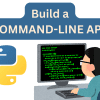Latest Posts |
|---|
|
From Our Partners |
|---|
More Recent Posts
- Utilizing Pandas AI for Data Analysis
- AI Con USA: Navigate the Future of AI 2024
- Dot com to Dot AI: The New Tech Bubble?
- Level Up with DataCamp’s New Azure Certification
- Geospatial Data Analysis with Geemap
- 5 Free Courses to Master Math for Data Science
- 7 Steps to Mastering Data Engineering
- Popular Google Certification for All Areas in the Tech Industry









